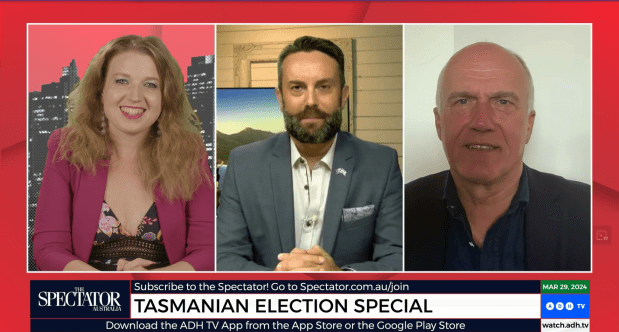 Last Friday, Fairfax ran a report by Latika Bourke on my talk to the Centre for Independent Studies, as the so-called ‘architect of the Abbott government’s GP co-payment’. Bourke highlighted my ‘scorching’ critique of the rise and fall of the 2014 budget co-payment measure, its handling and the failure of the Turnbull government to learn its lessons.
Last Friday, Fairfax ran a report by Latika Bourke on my talk to the Centre for Independent Studies, as the so-called ‘architect of the Abbott government’s GP co-payment’. Bourke highlighted my ‘scorching’ critique of the rise and fall of the 2014 budget co-payment measure, its handling and the failure of the Turnbull government to learn its lessons.
She rightly headlined my comment that Malcolm Turnbull went into this year’s election without a real health policy (a meagre handful of initiatives and a bagful of reviews doesn’t count), and my observation that despite the success of Labor’s Medicare privatisation scare campaign, and the message marginal seat voters sent that health and Medicare are top priorities for them, the barely-returned government has shown few signs that it has listened, let alone acted.
Bourke focused on my views on the government’s performance from a more wide-ranging speech, as that’s where the real meaty news was. But if Labor plans to exploit what I said in this final parliamentary week, they should read my full remarks, including:
On the other side, what have we got from Labor? Basically we have had for the last few years, really since the co-payment broke just after the Abbott government was elected in December 2013, is just push-back. It’s just been all negative. It’s just been ‘I hear your pain, so I’ll throw money at all that bad things governments have done and make it better for you’. Put a Band-Aid on it and kiss it better!
And the election campaign itself, besides the fact it was founded on a lie, all the health policy that Labor put forward was of that nature. The real imitator of Donald Trump in Australian politics is not Pauline Hanson but Bill Shorten, because of the populism that under his leadership the Labor party is resorting to, and therefore is creating a big problem for the…health policy conversation in general.
And:
The GP co-payment and Labor’s successful Mediscare, I think, ultimately showed that the Whitlam-Hawke Medicare settlement is not easily tampered with. The Australian public won’t readily tolerate even minor change to that settlement, let alone major renovation, and that’s because of the politics around it. The grounds for such changes therefore need to be well-tilled, and in the populist, rent seeking mentality that now dominates our politics, this requires real political courage that is sadly lacking.
Indeed, I fear genuine big thinking by genuine big thinkers scares politicians and government and provides easy targets to the oppositionists and populists who dominate federal and state agendas these days. And by opposition I don’t just mean Shorten Labor: I mean any party or leader seeking to gain office by playing to the fears of voters rather than to their aspirations. Indeed, when vote-hungry oppositions shred a government’s record on obsolete measures like bulk billing rates, public hospital beds and waiting times and pander too much to the wishes of doctors, that is the AMA, rather than the best interests of patients and taxpayers, we get reform paralysis not a climate of innovation.
While the centre-right has no clear policy, and the centre-left has abandoned it for populism, Medicare and healthcare services generally will continue to hoover up scarce public resources with little chance of tough decisions to achieve even modest savings, let alone extensive structural and efficiency reform.
That policy vacuum is the ongoing tragedy of the ill-fated GP co-payment, and I regret my role in kicking along the debate that led to the 2014 budget measure in the form it was made.
Lastly, some interpreted my comments in the speech, in which no-one was singled out or named, as being scathingly and personally critical of then health minister Peter Dutton. That wasn’t intended.
The fact is the political misjudgement and mismanagement of the co-payment was a team effort, from Tony Abbott and former treasurer Joe Hockey, and their offices, downwards, and driven mostly by budget imperatives and timing – especially the imperative to book the nominal savings in the 2014 budget bottom line. Dutton was the messenger, reluctant salesman and ultimately the fall guy for the too-clever-by-half ideas of others, including some who since not only have survived but thrived.
As health minister, Dutton bore the brunt of a year-long political firestorm, his internal urgings for modifying the co-payment plan went unheeded by the PM’s office and the Treasurer, and in the December 2014 reshuffle he took a big personal hit for the team. While he was a part of that team, his role in the rise of fall of the co-payment was an honourable one.
But in his move from health to immigration, Dutton found his ideal niche and is one of the few political successes of the government. At least that particular good came from the co-payment mess. If the Turnbull government doesn’t show it’s learned from the co-payment experience, and the political consequences of Mediscare, that will be about the only good thing that emerges from the ashes.
Labor, on the other hand, should accept responsibility for its dereliction of sound health policy to resort to shameless populism and fear-mongering.
But don’t hold your breath on that.
Got something to add? Join the discussion and comment below.
Get 10 issues for just $10
Subscribe to The Spectator Australia today for the next 10 magazine issues, plus full online access, for just $10.

























Comments
Don't miss out
Join the conversation with other Spectator Australia readers. Subscribe to leave a comment.
SUBSCRIBEAlready a subscriber? Log in